Remember when it seemed like peanut butter was pretty much your only option in the grocery store? Well, those days are looong gone. These days, the supermarket has practically half an aisle dedicated to all of the different nut butter options.
But in this brave new world of nut butters, how’s a girl to know which protein-packed staple to slather on her snack? Is there really a best nut butter?
“Ranking nut butters is like ranking veggies,” says dietitian Keri Glassman, RD. “They’re all good!”
In addition to supporting weight loss (as long as you exercise portion control), nuts can also help you ward off diabetes, cancer, and heart disease, she says.
Generally, nut butters provide a nice balance of healthy fats, protein, and fiber, as well as vitamins (like vitamin A, vitamin E, and B vitamins) and minerals (likeiron, zinc, magnesium, and potassium), Glassman says.
Wondering about PB and sunflower seed butter? Butters made from seeds or legumes also offer legitimate benefits. (Just keep that added sugar as low as possible, of course.)
However, just as with veggies, certain nut (or seed or legume) butters might be better suited to your personal nutritional needs and fitness goals. That’s why I asked dietitians to rank the best nut butters in order of their nutritional one-two punch. Consider your next stroll through the grocery store as smooth as Skippy.
1. Almond Butter
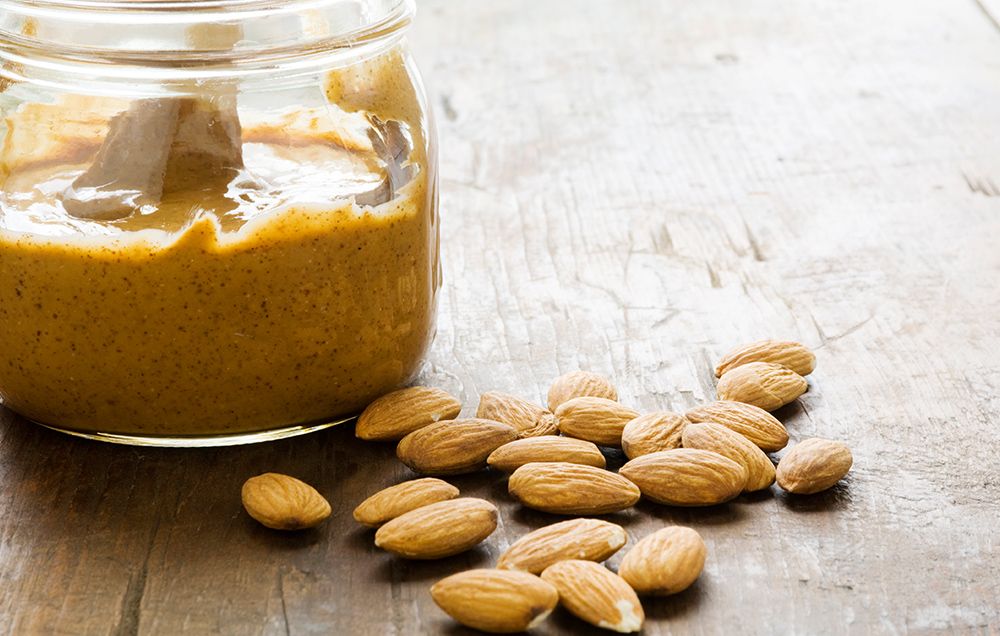 Getty Images
Getty Images
From a nutritional perspective, almond butter just barely edges out your old pal PB.
“Almond butter is the highest in healthy fats, with about three grams more of heart-healthy monounsaturated fat per serving compared to peanut butter,” says Glassman. (It’s also slightly higher in nutrients like the antioxidant vitamin E.)
Find out how almonds can help you lose weight:
Almond butter is perfect slathered onto apple slices or celery and, thanks to its combo of protein, fiber, and healthy fats, makes an ideal post-workout snack.
However, since almond butter is significantly more expensive than peanut butter (and almonds require a lot of water to produce), feel free to mix up your nut butter game, Glassman says.
Per serving (2 tbsp): 196 calories, 17.8 g fat, 6 g carbs, 3.3 g fiber, 2 g sugar, 73 mg sodium, 7 g protein
2. Peanut Butter
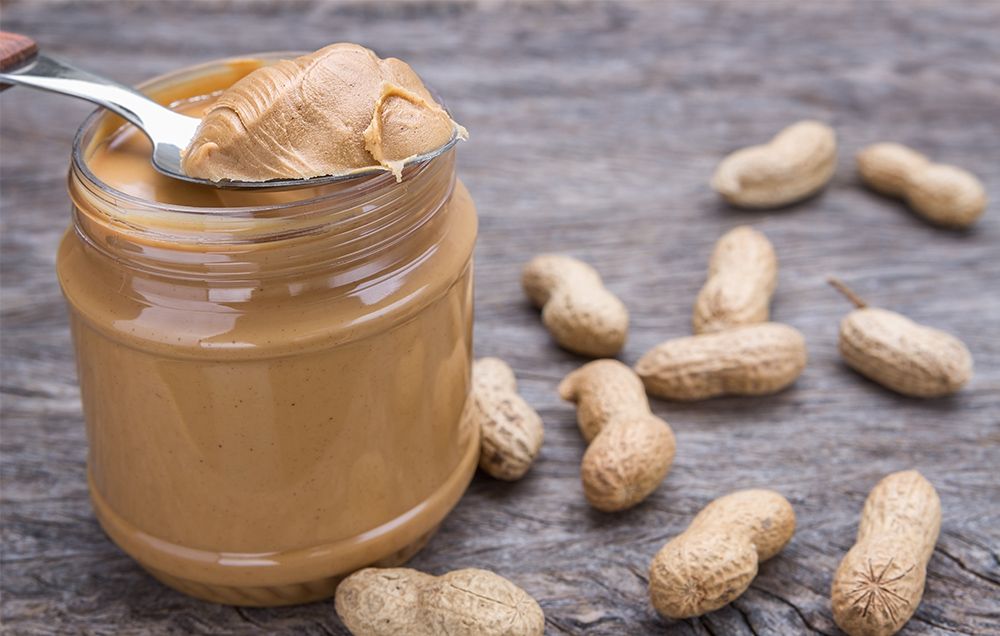 Getty Images
Getty Images
There’s a reason this OG stands strong. Though not as high in healthy fats and vitamin E as almond butter, peanut butter is higher in protein, says Glassman.
It’s also got ample amounts of iron and folate to help prevent anemia, potassium for your muscles, magnesium for your bones and to help you sleep, and vitamin B6 and zinc for your immune system, she says.
Being around a long time also gives peanut butter the advantage of being the most-studied, and research has shown that eating peanut butter regularly can help decrease your risk of heart disease and diabetes.
Another perk: good ol’ PB is cheap.
Per serving (2 tbsp): 191 calories, 16.4 g fat, 7.1 g carbs, 1.6 g fiber, 3.4 g sugar, 136 mg sodium, 7.1 g protein
3. Pistachio Butter
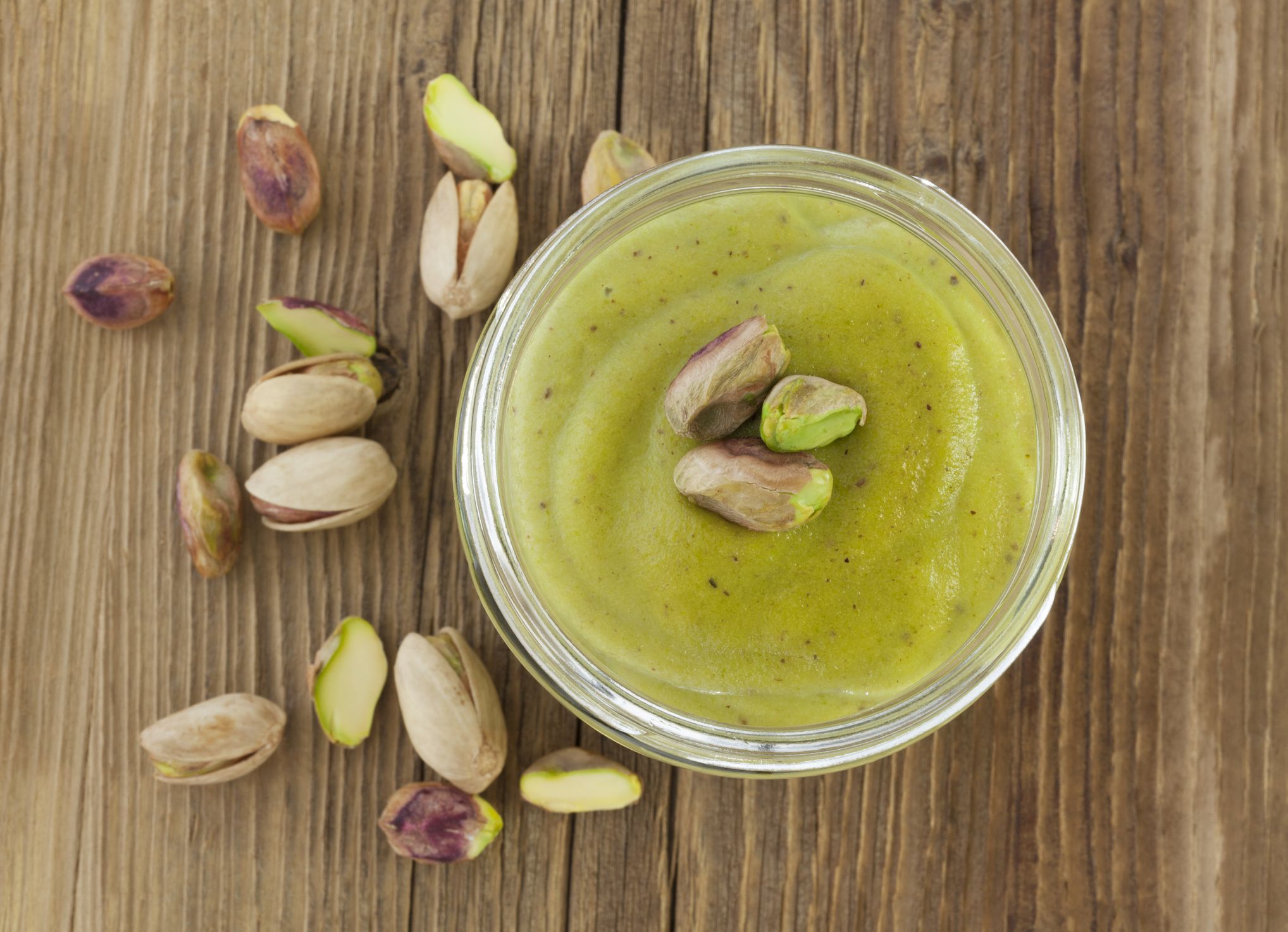 subjugGetty Images
subjugGetty Images
Of all of the new nut butter options out there, pistachio butter is definitely one worth checking out—especially if you’re looking to up your protein intake.
“Protein is important since it helps build and repair muscle, and aids in mealtime satiety,” says Keri Gans, RD, dietitian and author of The Small Change Diet.
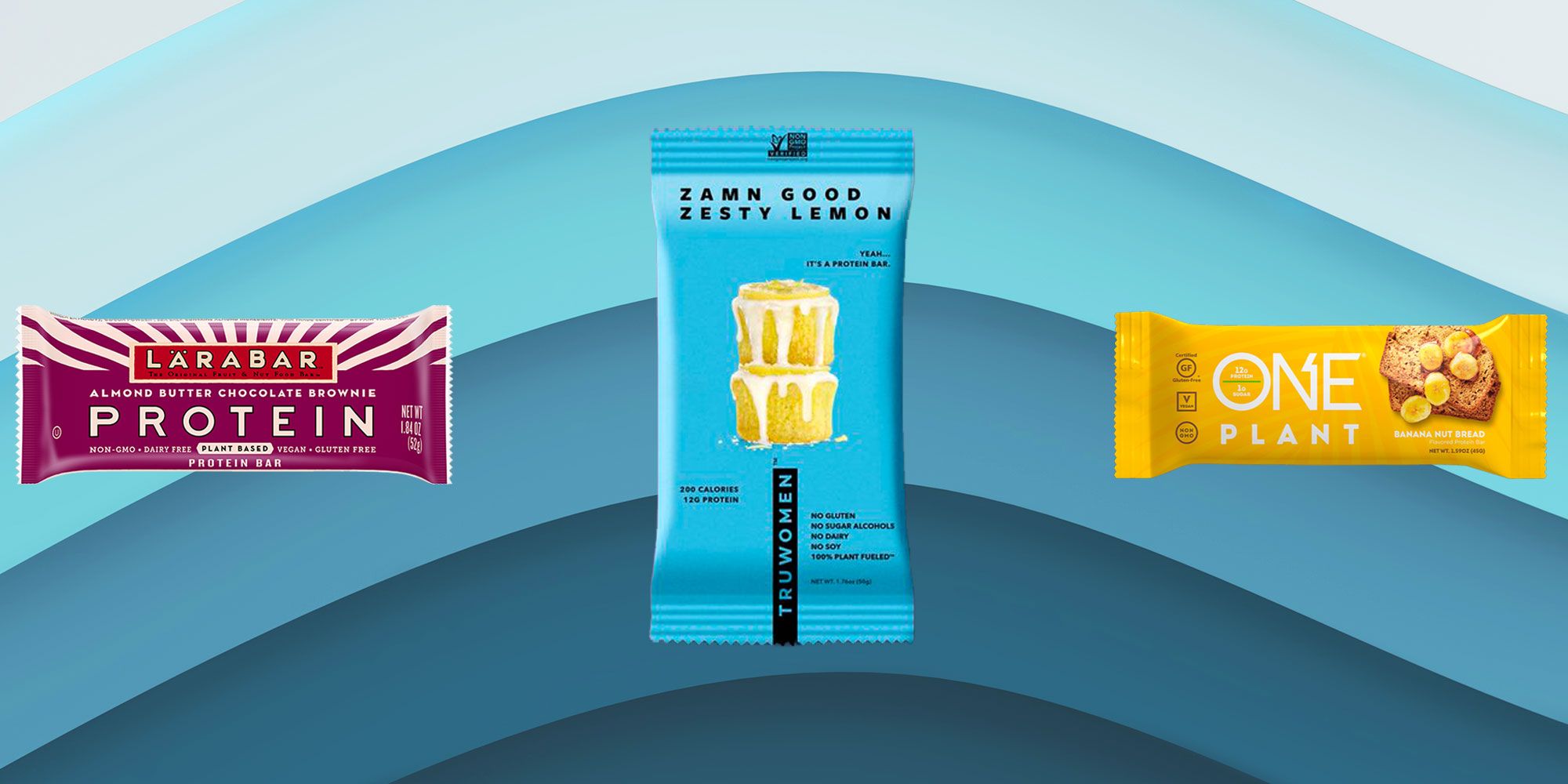
Pistachio butter is also “loaded with B vitamins that can help you turn calories into energy,” adds Scott Keatley, RD, dietitian and founder of Keatley Medical Nutrition Therapy.
It also just tastes really, really good. “It may be the tastiest of the nut butters, if you were to ask me,” Keatley says.
Per serving (2 tbsp): 180 calories, 13 g fat,9 g carbs, 3 g fiber, 2 g sugar, 0 mg sodium, 6 g protein
4. Walnut Butter
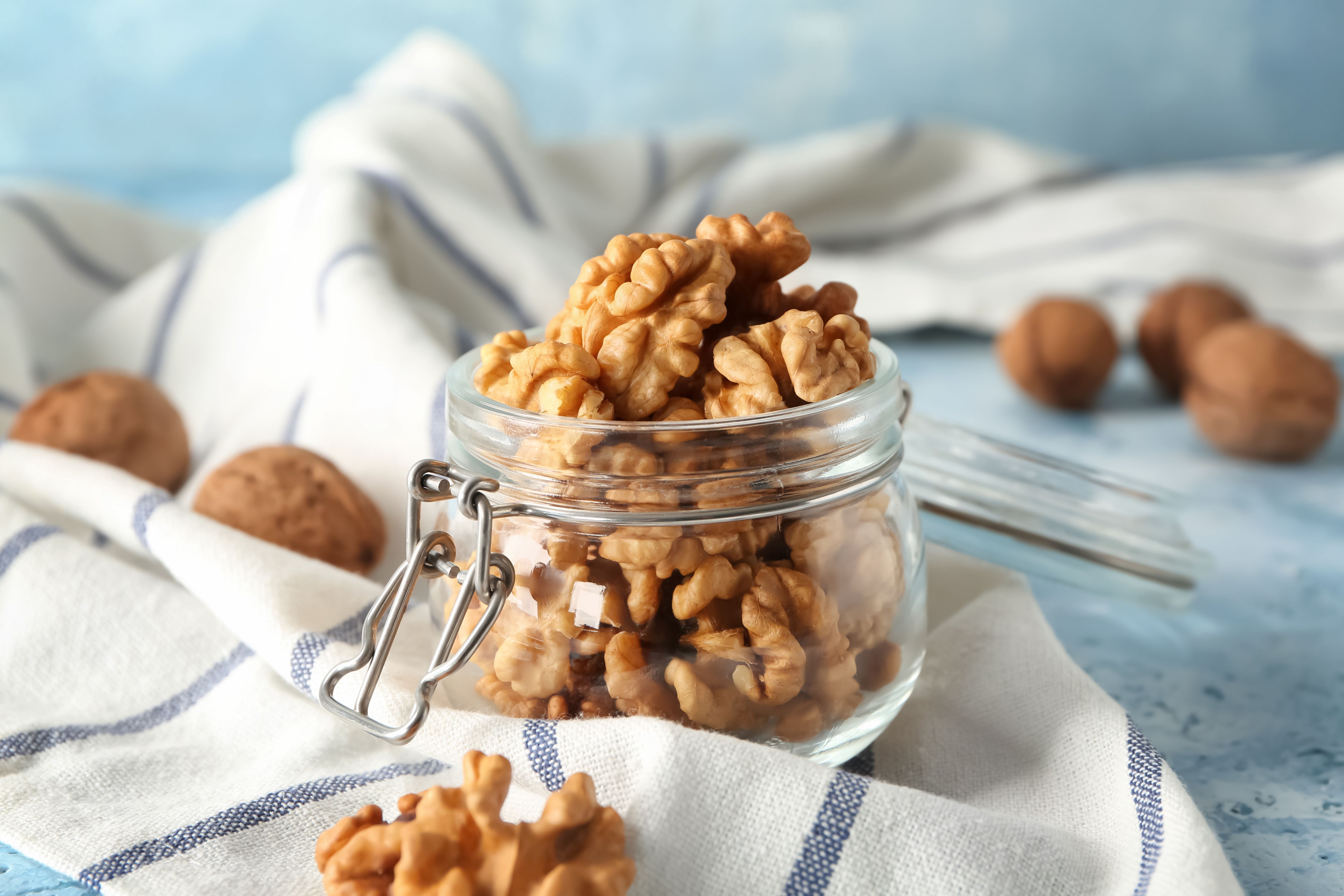 serezniyGetty Images
serezniyGetty Images
In addition to a solid serving of protein, walnut butter also offers alpha-linolenic acid (ALA), the omega-3 fatty acid found in plants. According to Keatley, ALA can help lower your risk of heart disease, lower your blood pressure and cholesterol, and reverse hardening of your blood vessels, so there’s that.
Walnut butter also offers nut butters’ usual heart-boosting properties. “It also provides heart-healthy monounsaturated fats and vitamin E, which both have anti-inflammatory properties,” Gans says.
Per serving (2 tbsp): 170 calories, 14 g fat, 11 g carbs, 1 g fiber, 7 g sugar, 0 mg sodium, 1 g fiber, 3 g protein
5. Sunflower Seed Butter (a.k.a. SunButter)
 Getty Images
Getty Images
Up to 1.5 percent of Americans are allergic to peanuts and tree nuts (a number that has tripled since the 1990s), so alternative spreads for bananas and toast are a must these days.
“Sunflower seed butter is an excellent choice for anyone with a nut allergy or sensitivity,” Glassman says.
Sunflower seed butter is also high in vitamins E and A, which are awesome for glowing skin and bright eyes, she adds. Plus, it boasts more magnesium per serving than any other butter on the list, making it a powerful inflammation regulator and beauty-sleep supporter.
However, SunButter is higher in calories and slightly lower in protein than the other spreads on this list, so don’t go overboard when eating it.
Per serving (2 tbsp): 197 calories, 17.7 g fat, 7.5 g carbs, 8 g fiber, 3.4 g sugar, 106 mg sodium,5.5 g protein
6. Hazelnut Butter
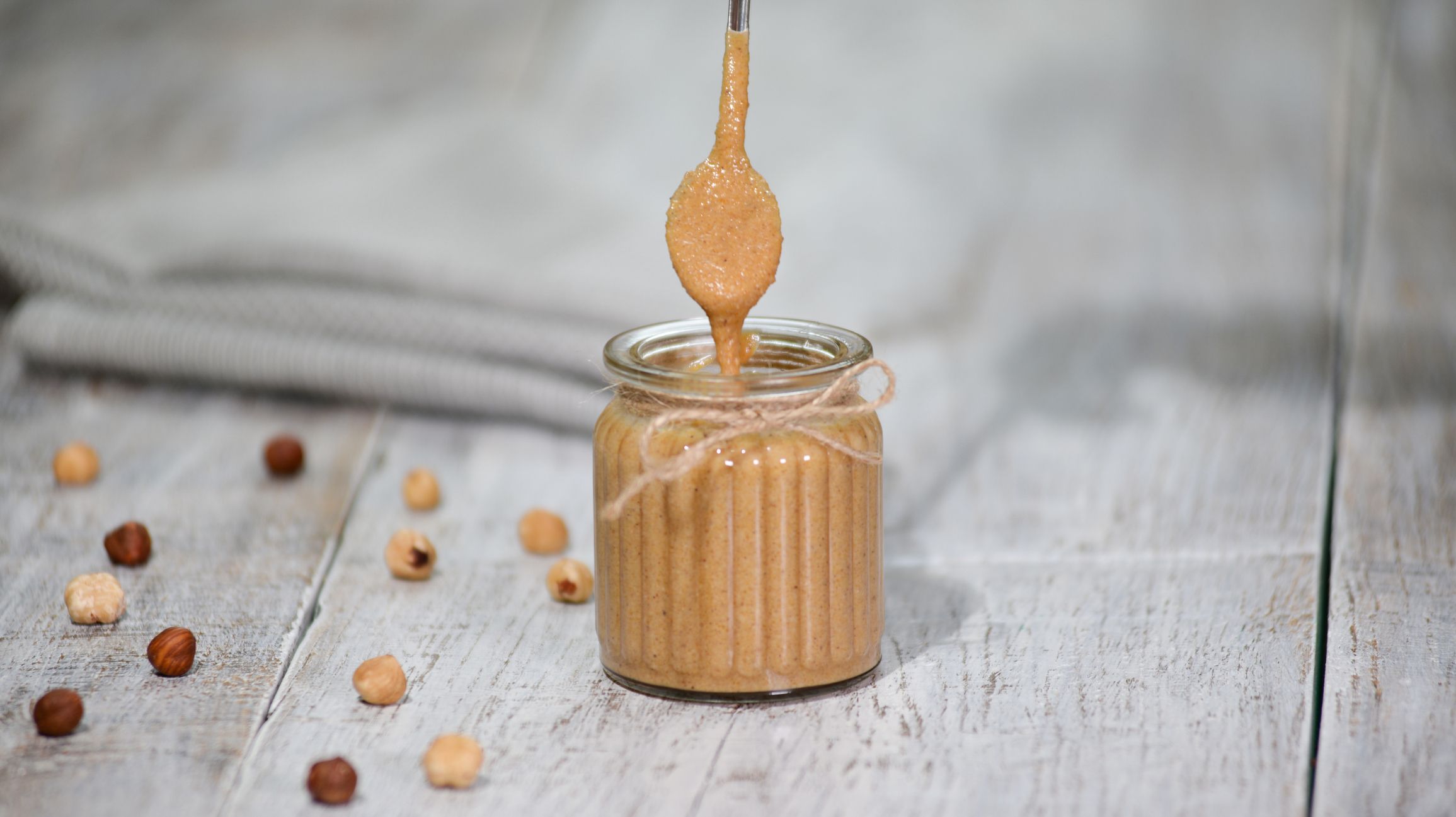 Mariia KozubGetty Images
Mariia KozubGetty Images
“For those with a peanut allergy, hazelnut butter can also be a good alternative,” says Gans. Hazelnut butter is rich in oleic acid, a form of monounsaturated fat that may help lower your risk risk of heart disease and stroke.
This unusual pick is also completely free of natural sugars and is another great source of vitamin E, Keatley adds.
Just make sure you’re reaching for true hazelnut butter—not chocolate hazelnut spread. (Let’s be real, Nutella is much more chocolate and sugar than actual hazelnuts.)
Per serving (2 tbsp): 160 calories, 14 g fat, 8 g carbs, 1 g fiber, 0 g sugar, 0 mg sodium, 5 g protein
7. Tahini
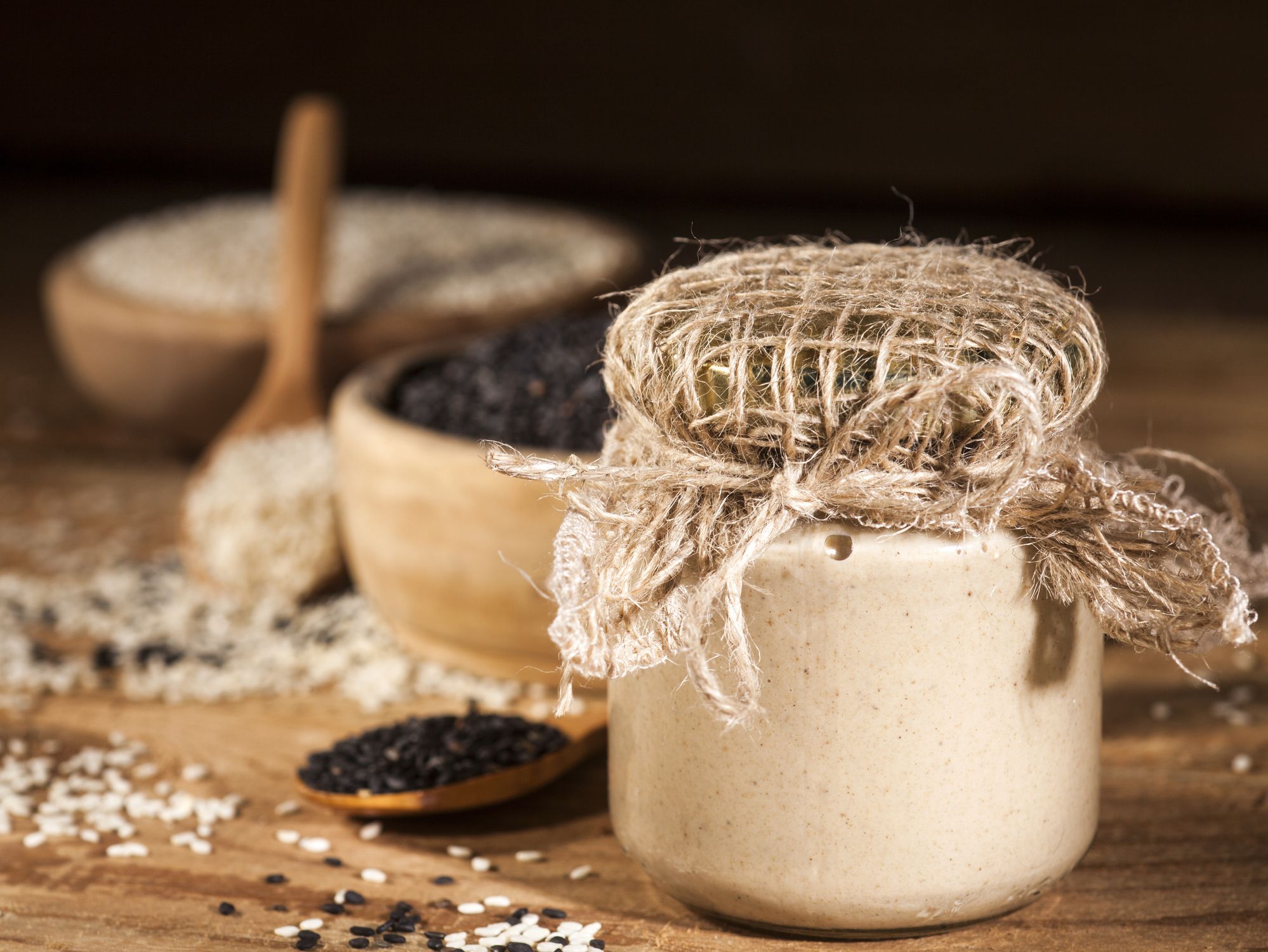 NikiLitovGetty Images
NikiLitovGetty Images
Made from sesame seeds, tahini is technically a seed butter—and it’s become a more and more popular pick in recent years.
Like many other butters on this list, tahini is a good source of the antioxidant vitamin E, Gans says.
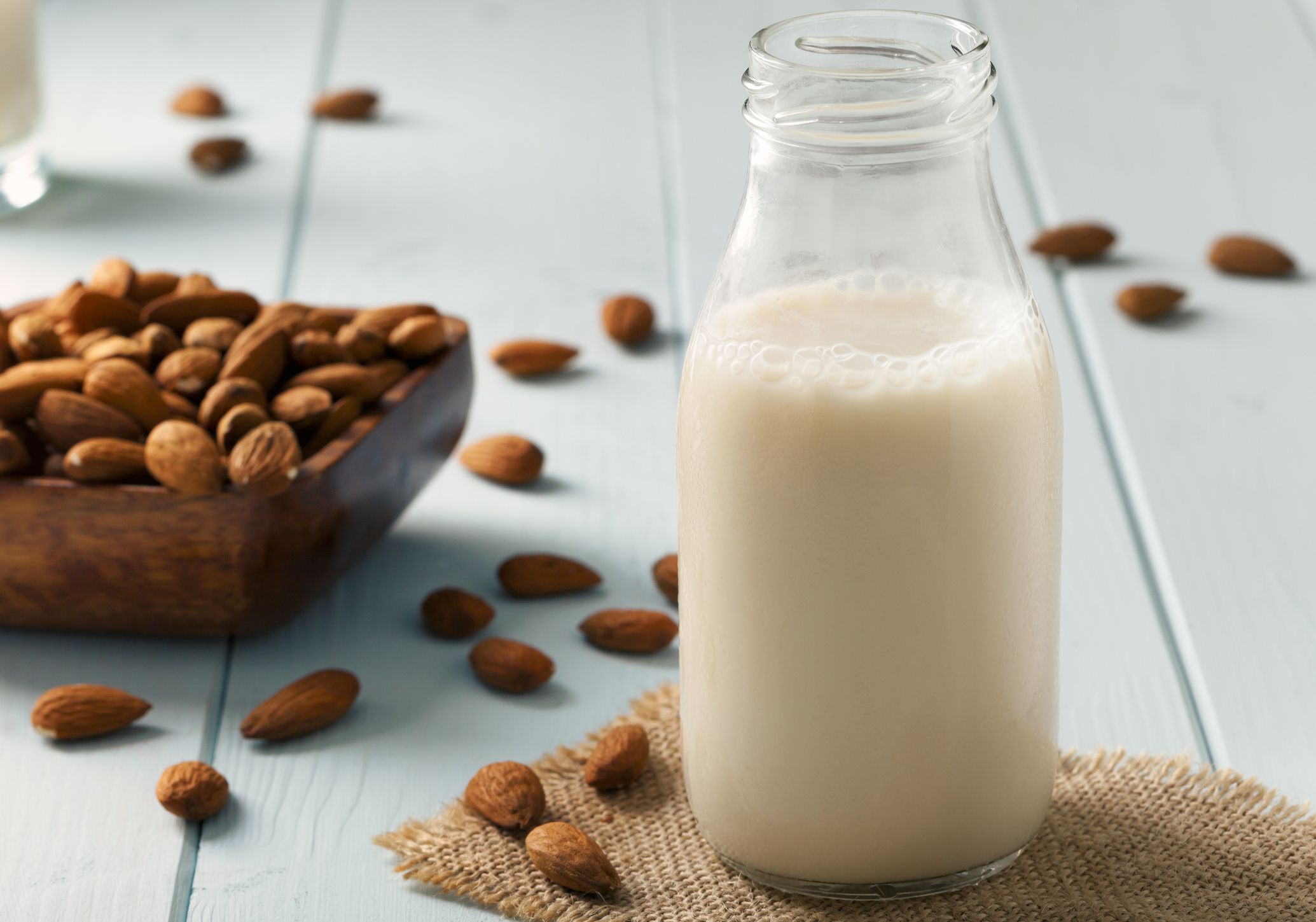
Plus, according to Keatley, tahini contains “a ton” of copper, which helps play a role in making red blood cells. (If you really want to get the most out of tahini’s copper, though, don’t eat it with high-zinc foods—like meat or shellfish—since zinc and copper compete for absorption in the body.)
Per serving (2 tbsp): 70 calories, 6 g fat, 3 g carbs, 0 g fiber, 0 g sugar, 140 mg sodium, 2 g protein
8. Cashew Butter
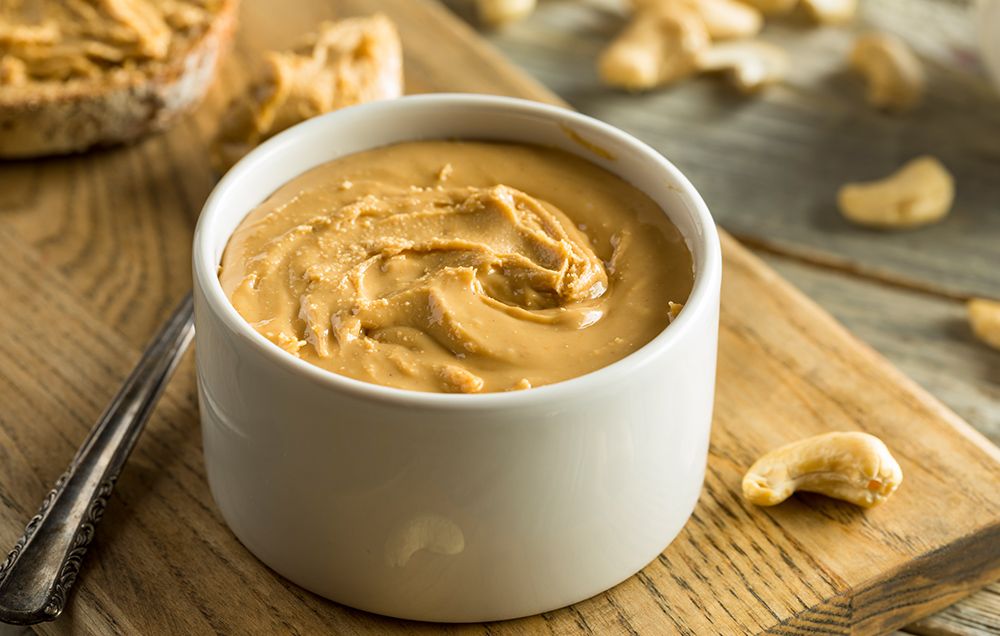 Getty Images
Getty Images
“Cashew butter is naturally sweeter than many other nut butters,” says Glassman. If you’re working on lowering your added sugar intake without sacrificing your sweet tooth, it’s a good choice.
Thing is, it’s also lower in protein than most other nut, seed, and legume butters, she says. (Cashews are technically legumes.)
Plus, cashew butter is typically on the pricier side, so consider it an occasional sweet treat instead of your go-to for smoothies, cooking, or protein-packed snacks.
Per serving (2 tbsp): 195 calories, 17 g fat, 9.7 g carbs, 1 g fiber, 3 g sugar, 94 mg sodium, 3.9 g protein
9. Coconut Butter
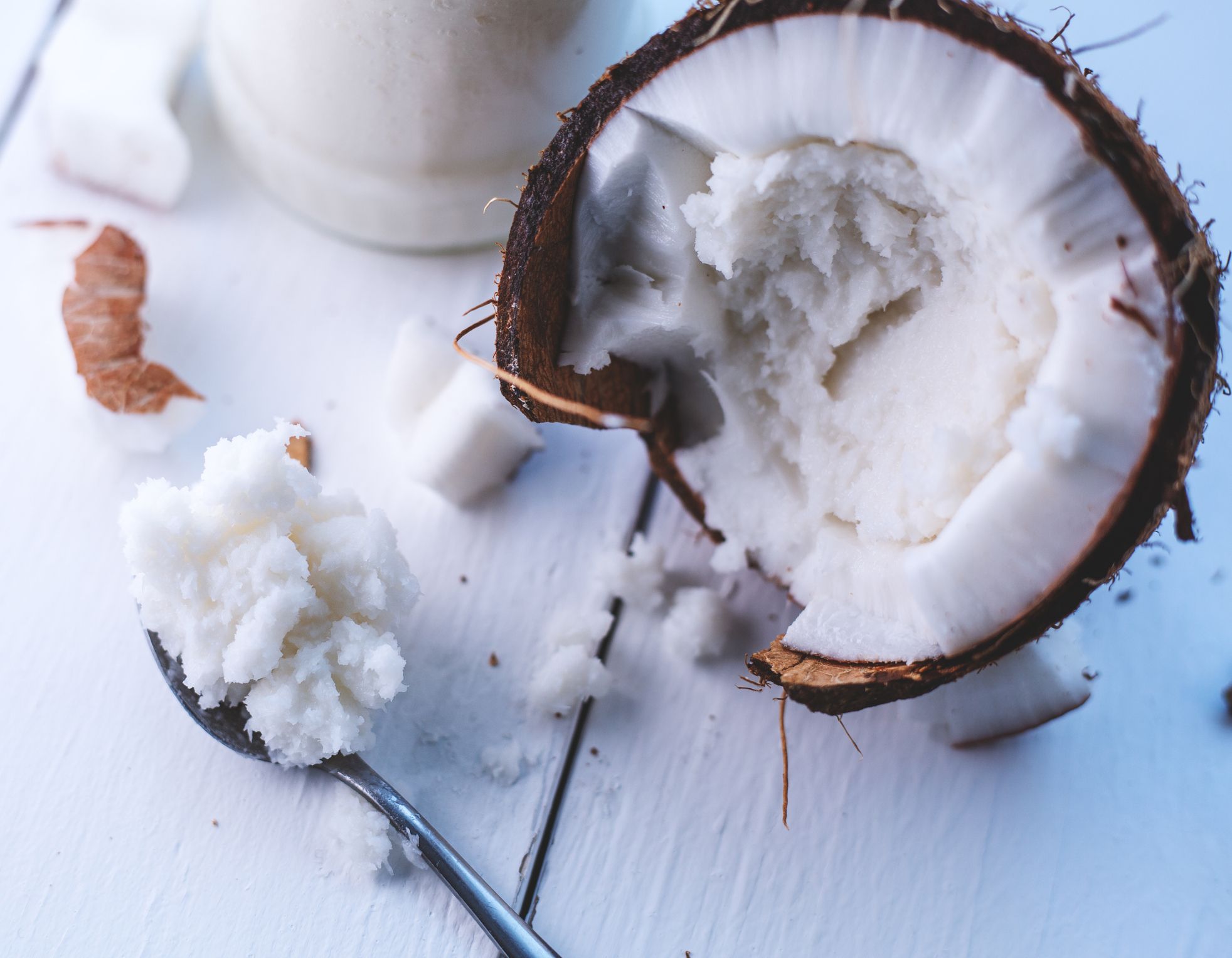 Martyna87Getty Images
Martyna87Getty Images
Okay, coconut butter is technically a fruit butter—but still totally counts.
“Compared to other butters, coconut butter is one of the highest in fiber,” Gans says. (As you probably know by now, fiber is important for healthy blood sugar, a healthy heart, and a smoothly-running digestive tract.
Coconut butter also provides some protein, potassium, magnesium, and iron, Keatley says. It is, however, high in saturated fats, which may or may not be so great for you. (The jury is still out there.)
While you many not want to dive into coconut butter as often as almond or peanut butter, it still can be part of a healthy, balance diet. “Just go easy with your serving sizes,” Keatley says.
Per serving (2 tbsp): 200 calories, 18 g fat, 7 g carbs, 3 g fiber, 3 g sugar, 15.1 mg sodium, 2 g fiber
Source: Read Full Article
